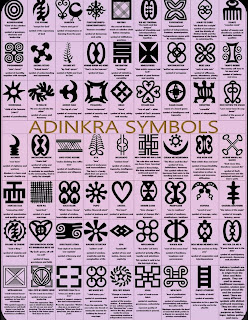AFAJATO ANTHOLOGY:AUTHORS SHARE INSIGHTS ON WRITING PROCESS AND THEMES.
Afajato Anthology Authors Share Insights on Writing Process and Themes
In a recent interview, authors Benjamin Cyril Arthur, Akorfa Dawson, Alberta Morty, and Ursula M. Abanga shed light on their creative processes and the inspiration behind their stories featured in the Afajato anthology, which delves into narratives set around the Volta Lake region.
The authors, members of the the Ama Atta Aidoo Centre for Creative Writing, showcased diverse approaches to storytelling while staying true to a central theme. Their anthology, *Afajato: Stories from Around the Volta Lake*, marks a significant literary contribution, exploring the cultural and social fabric of the Volta region. During a reading and discussion session hosted by the Aidoo Centre, the authors engaged with students from African University College of Communications (AUCC).

"I write based on social issues around. So with this theme of stories from the Volta Lake, I picked an issue that was child labor and male children being favored over female children," said Akorfa Dawson, author of the Worla in the Afajato anthology. The themes of her story involve homecoming, reconciliation, child labor, and gender equality.
Similarly, Ursula M. Abanga's narrative focused on a child with a profound connection to the lake in his town. "Most of my stories start with weird ideas I get. I don't write based on themes. Sometimes people read my stories and tell me themes they identified but I never meant for that," she shared.
Benjamin Cyril Arthur drew inspiration from a vibrant hair salon environment for his tale. "I took my sister to the hair salon once and that's how the setting and theme of the story was developed. All the characters were there so it was easier to write the characters," he revealed.
These authors are a part of the 15 unique authors whose stories were compiled, edited and featured in the Regional anthology, Afajato: Stories from around the Volta Lake. When asked about challenges they faced in their writing processes, Language was revealed as a minor challenge for Ursula and Benjamin during their writing process.
"My issue was that I didn't know any Volta region languages. Nana told me that it had to be set there and I didn't know any ewe names. I had to call my friends for ewe names. I need boys ewe names, I need girls ewe names. How do you call a priest? That was the only point we're I felt like I could be in trouble. Except that I was ok throughout," said Ursula.
"And the language was also a problem because my mom speaks ewe but doesn't write so we were struggling to wrote was she was speaking," said Benjamin.
When asked about tackling writer's block, the authors emphasized the value of feedback.
"I would send my work to my friends and they'd advise me on which way to continue the story. I think having friends helps with writer's block," said Benjamin.
Miss Ursula echoed this sentiment, stating, "For me, it wasn't writer's block exactly. More like this isn't a type of story I usually write. I gathered up my roommates and had them help me organize the story and finish it."
The Afajato anthology stands as a testament to the Aidoo Centre's commitment to fostering regional voices and narratives, offering readers a tapestry of stories woven from the rich cultural tapestry of the Volta Lake area.




Comments
Post a Comment